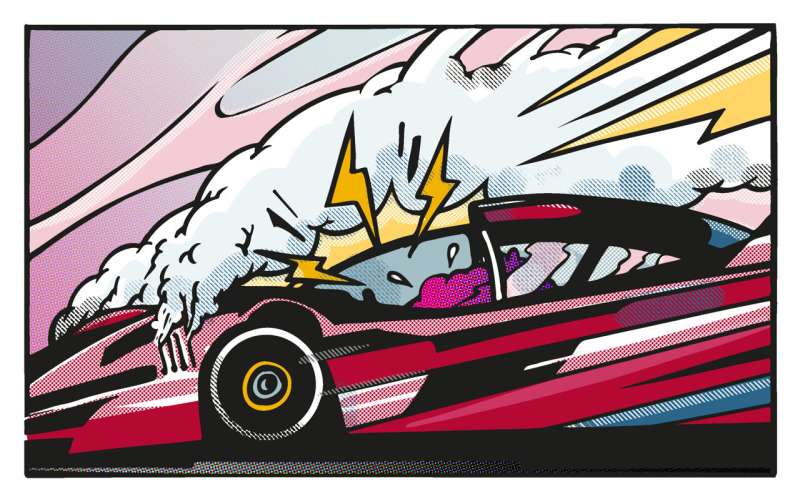This article has been reviewed according to Science X's editorial process and policies. Editors have highlighted the following attributes while ensuring the content's credibility:
fact-checked
peer-reviewed publication
trusted source
proofread
Beating by overheating: A new strategy to combat cancer

Many new drugs inhibit the processes that cancer cells need to divide rapidly. So as to inhibit the cancer as a whole. But cancer cells have all sorts of workarounds to get around that effect. As a result, the tumor becomes unresponsive to treatment.
That's why researcher Matheus dos Santos Dias is taking a completely different approach. He had to convince some colleagues before he could start working on this quite surprising idea. After all, you're not going to give cancer cells a boost, are you? "We're going against the prevailing view that you can only fight cancer cells by inhibiting them," he knows. "But we had strong evidence that it also works if you overstimulate and exhaust them."
Everyone makes inhibitors
And so he set out to find a drug that stimulates cancer cells, as well as a perfectly suited partner drug that can then finish the job. By doing so, he wants to upset the balance in cancer cells to the point where they can no longer save themselves. "Compare it to the engine of a racing car: if you crank up the RPM and then turn off the cooling, it's bound to crash. This is exactly what we are trying to do with the drugs."
"Activating drugs are not that common; almost everyone makes inhibitors. But we did find one we could work with," he says. That drug acts on the protein PP2A. In a large-scale experiment with all kinds of drug combinations, he and his colleagues then found a WEE1 inhibitor to be the best partner in crime. That inhibitor targets overactive, stressed cells and keeps them from functioning properly.
Higher gear
Cancer cells and mice with patient tumors respond well to the drug combo. And, not insignificantly, the side effects seem manageable. Dos Santos Dias says, "This obviously does not mean it will not have side effects in humans. But we suspect that normal cells can defend themselves against this activation much better than cancer cells, which of themselves are already in a higher gear."
"Resistance is a huge problem with existing treatments: cells no longer respond and usually become even more aggressive than they already were. So, we also looked at what happens when cells stop responding to our treatment. Surprisingly, resistant cells actually seemed less malignant: they grew less quickly, or not at all."
"This research makes you think about cancer very differently," says internist-oncologist Neeltje Steeghs. She heads the Clinical Research Unit at the Netherlands Cancer Institute, where the very first patients receive new treatments within clinical studies.
Paradoxical approach
"I don't know whether this new combination will work in patients. The reality is that many of these kinds of early studies are not successful. But the current treatments doctors have access to did start there as well. And when you've done all you can in the lab, the only step you can and must take is testing in patients." The researchers hope to have started the first study in patients by the end of this year.
"In the beginning, doctors and researchers still had questions about this concept, but now the support is incredible," says Dos Santos Dias. "Scientifically, the concept is hard to refute. I hope that other labs will now also start testing this paradoxical approach, including other drugs as well."
The findings are published on the bioRxiv preprint server pending publication in Cancer Discovery.
More information: Matheus Henrique Dias et al, Paradoxical activation of oncogenic signaling as a cancer treatment strategy, bioRxiv (2023). DOI: 10.1101/2023.02.06.527335

















